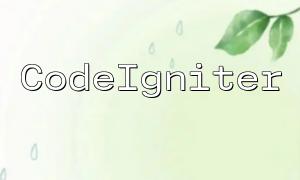Choosing a PHP framework is only the beginning of developing a modern web application. To truly build a high-quality system, developers need to follow a set of proven best practices. This article explores key practices like dependency injection, single responsibility, unit testing, error handling, and coding standards, with practical code examples to help improve maintainability and scalability.
Dependency Injection (DI) is essential in PHP frameworks for reducing tight coupling and improving testability. By managing dependencies through a DI container, your application structure becomes cleaner and easier to maintain.
Here’s how DI is used in Laravel:
use App\Services\UserService;
Route::get('/users', function (UserService $userService) {
return $userService->getAllUsers();
});Injecting services directly simplifies logic and helps maintain focused controller responsibilities.
Each class or method should focus on doing only one thing—this is the Single Responsibility Principle (SRP). Following SRP improves code readability, testability, and eases future enhancements.
Example using the Symfony framework:
// UserRepository.php
class UserRepository {
public function getAllUsers() { ... }
}
// UserController.php
class UserController {
public function all() {
$users = (new UserRepository)->getAllUsers();
return view('users.all', compact('users'));
}
}Separating data access logic from controller behavior ensures clarity and testability for each component.
Writing proper unit tests helps developers catch issues early, supports safe refactoring, and ensures feature reliability over time.
Here's how to test a Laravel model using PHPUnit:
use PHPUnit\Framework\TestCase;
use App\Models\User;
class UserTest extends TestCase {
public function testName() {
$user = new User(['name' => 'John Doe']);
$this->assertEquals('John Doe', $user->name);
}
}Covering core logic with tests gives developers confidence in their code and accelerates development.
Centralized and structured error handling enhances both debugging during development and the overall user experience during runtime.
In Lumen, middleware can handle exceptions globally:
$app->middleware('App\Http\Middleware\ErrorHandlerMiddleware');This approach allows consistent logging, formatting, and control of how errors are processed.
Consistent coding styles are vital for team collaboration. Adopting standards like PSR-2 improves code readability and makes onboarding new team members easier.
Example configuration for PSR-2 compliance:
{
"extends": "@PSR2"
}Paying attention to naming, indentation, and commenting contributes to high-quality, maintainable code.
By systematically applying these best practices, PHP developers can build applications that are structured, maintainable, and scalable. These principles not only improve code quality but also enhance productivity and streamline the development workflow. Following best practices is a mark of professionalism and a foundation for effective teamwork.








